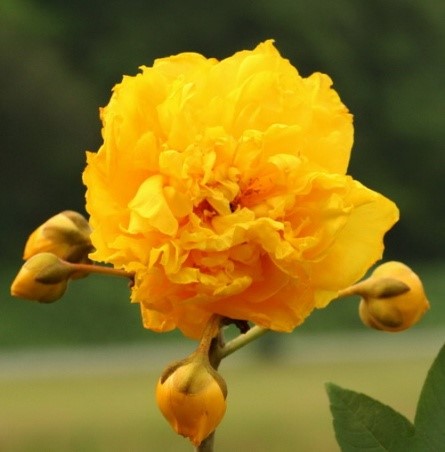

Recently, under the guidance of Prof. YANG Ziyin, the research group from South China Botanical Garden of Chinese Academy of Sciences published an article entitled "Biochemical pathway of benzyl nitrile derived from L-phenylalanine in tea (Camellia sinensis) and its formation in response to postharvest stresses" in Journal of Agricultural and Food Chemistry.
Tea is the most popular non-alcoholic beverage worldwide processing with the tender shoots or leaves of tea plant. During the postharvest process, abiotic stress (such as light, low temperature, and wounding) were introduced to enhance the volatile compound which affecting tea character and quality. “From a food perspective, some volatile compounds contribute to the tea aroma quality, while, from an agricultural plant perspective, some volatile compounds play important roles in tea plant defense against stresses owing to their toxicity, which might affect tea safety. However, little attention has been paid to study the latter.” Dr. LIAO Yinyin, the first author of this paper, said.
For example, benzyl nitrile is a defense-related toxic volatile compound commonly accumulates in tea leaves exposed to wounding stress during the turn over stage, but its formation mechanism in tea remains unknown.
In this study, isotope-labeled phenylalanine tracing approach and in-vitro enzyme reactions showed that benzyl nitrile was generated from L-phenylalanine via phenylacetaldoxime in tea. Recombinant protein (CsCYP79D73) showed activity for converting L-phenylalanine into phenylacetaldoxime, while recombinant protein (CsCYP71AT96s) showed activity for converting phenylacetaldoxime into benzyl nitrile. Benzyl nitrile accumulation under continuous wounding stress was attributed to an increase in phytohormone (jasmonic acid), which activated expression of key synthesis gene (CsCYP79D73), along with phenylacetaldoxime and benzyl nitrile contents. This study represents the first elucidation of the formation mechanism of benzyl nitrile in tea. These results can be applied not only to avoid excessive accumulation during tea processing, which might cause food safety problems, but also to the accurate regulation of insect resistance in the tea plantations.
For details, please refer to https://doi.org/10.1021/acs.jafc.9b06436.

